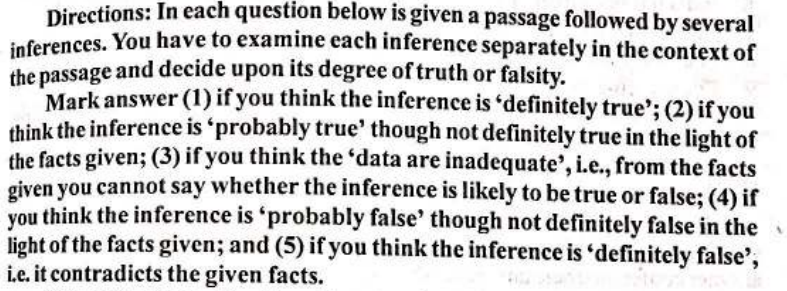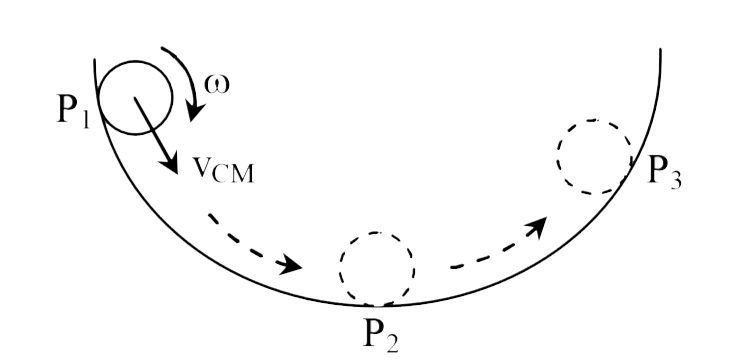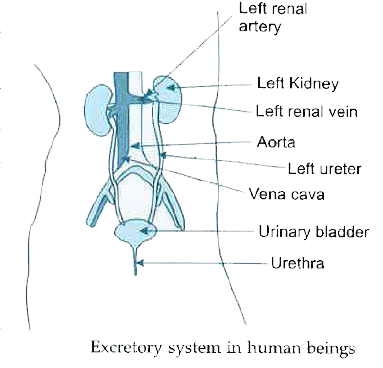One of the faster and less expensive procedures for preliminary screening of potential carcinogens include…..test.
Biuret
Dick
Ames
ELISA
The correct Answer is:C
Step by step video, text & image solution for One of the faster and less expensive procedures for preliminary screening of potential carcinogens include…..test. by Biology experts to help you in doubts & scoring excellent marks in Class 12 exams.
Topper's Solved these Questions
Similar Questions
Teja Ltd. Received 22.495 applications for the post of fifty supervisor. Preliminary. Screening was done and 3,545 applications were filtered. Varies steps of selection process were taken and finally fifty candidate as supervisor were selected. They were directly posted to their respective posts. AFter one-month performance appraisal of these candidated. it was found that out of 50, eight were not able to perform as per standards as they were facing practical problems while handling machines.
(i) In your opinion, what should be done to improve the performance of these eight supervisors.
(ii) How an organisation can be benefited by improving the skill level of employees.View Solution
Even after allowing for the inclusion of the unavoidable chillies, on the whole the Indian diet seems to be more protective than carcinogenic. The per capita fat intake is only 14-20 g daily, far below even the per capita consumption of 35 g daily recommended by the Indian Council of Medical Research. In practice, most of the population is essentially vegetarian, as even the so-called non-vegetarians eat meat only once or twice a week, meat being expensive. The incidence of cancer in India, with the age standardised rate of 115 per 100,000, is one of the lowest in Asia, and is only about one-third incidence in the West. The Indian diet may be one of the factors responsible.
The percentage of people suffering from cancer is the lowest in the case of India.View Solution
Knowledge Check
- Question 1 - Select One
A rectangular region of dimensions w×l(w<<l) has a constant magnetic field into the plane of the paper as shown. On one side the region is bounded by a screen. On the other side positive ions of mass m and charge q are accelerated from rest and towards the screen by a parallel plate capacitor at constant potential difference V<0, and come out through a small hole in the upper plate. Which one of the following statements is correct regarding the charge on the ions that hit the screen ?
 AIons with q>2|v|mB2w2 will hit the screen.BIons with q<2|v|mB2w2 will hit the screen.COnly ions with q=2|v|mB2w2 will hit the screen.DAll ions will hit the screen.
AIons with q>2|v|mB2w2 will hit the screen.BIons with q<2|v|mB2w2 will hit the screen.COnly ions with q=2|v|mB2w2 will hit the screen.DAll ions will hit the screen. - Question 2 - Select One
A new birth control method for men known as RISUG for Reversible Inhibition of Sperm Under Guidance is under testing. The procedure involves injection of a nontoxic polymer inside of the vas deferens. The polymer forms a coating on the inner lining of vas deferens. As sperms pass through, they are chemically disabled by the polymer. Hence, there is ejaculation but the sperms are incapable of fertilising the egg. At any stage if needed, the polymer film can be dissolved and removed using specific injections.
In one of the trials that was being conducted to check the effectiveness of the method, one of the conditions was for males to have had two children in the past. What could be the reason for having such a condition?Ato ensure that they could not produce more children in futureBto ensure that the procedure didn't have any side effects on their childrenCto ensure that the males were fertile and their partners had conceived in the pastDto ensure that they were educated enough to understand how the method worked - Question 3 - Select One
In 2002, the cognitive scientist Daniel Kahneman of Princeton Univernity won the Nobel Prize in Economics for work done with his longtime collaborator Amos Tversky (who died in 1996). Their work had to do with judgement and decision- making-what makes our thoughts and actions rational or irrational. They explored how people make choices and assess probabilities, and uncovered basic errors that are typical in decision-making.
The thinking errors they uncovered are not trivial mistakes in a parlor game. To be rational means to adopt appropriate goals, take the appropriate action given one's goals and beliefs, and hold beliefs that are commensurate with available evidence. It means achieving one's life goals using the best means possible. To violate the thinking rules examined by Kahneman and Tversky thus has the practical consequence that we are less satisfied with our lives than we might be. Research conducted in my own laboratory has indicated that there are systematic individual differences in the judgement and decision-making skills that Kahneman and Tversky studied.
Ironically, the Nobel Prize was awarded for studies of cognitive characteristics that are entirely missing from the most well- known mental assessment device in the behavioral sciences: intelligence tests. Scientists and laypeople alike tend to agree that "good thinking" encompasses sound judgment and decision- making - the type of thinking that helps us achieve our goals. Yet assessments of such good (rational) thinking are nowhere to be found on JQ tests.
Intelligence tests measure important things, but they do not assess-the extent ofrational thought. This might not be such a grave omission if intelligence were a strong predictor of rational thinking. But my research group found just the opposite: it is a mild predictor at best, and some rational thinking skills are totally dissociated from intelligence.
To an important degree, intelligence tests determine the academic and professional careers of millions of people in many countries. Children are given intelligence tests to determine eligibility for admission to school programs for the gifted. Corporations and the military depend on assessment and sorting devices that are little more than disguised intlligence tests. Perhaps some of this attention to intelligence is necessary, but what is not warranted is the tendency to ignore cognitive capacities that are at least equally important : the capacities that sustain rational thought and action.
Critics of intelligence tests have long pointed out that the tests ignore important parts of mental life, mainly non-cognitive domains such as socio-emotional abilities, empathy, and interpersonal skills. But intelligence tests are also radically interpersonal skills. But intelligence tests are also radically from the simple fact that many people display a systematic inability to think or behave rationally despite having a more than adequate us mensures of cognitive functioning, which is evident from the simple fact that many people display a systematic inability to think or behave rationally despite having a more than adequate IQ. For a veriety of reasons, we have come to overvalue the kinds of thinking skills that intelligence tests measure and undervalue other important cognitive skills, such as the ability to think rationally.
Psychologists have studied the major classes of thinking errors that make people less than rational. They have studied people's tendencies to show incoherent probability assessments, to be overconfident in knowledge judgments, to ignore the alternative hypothesis, to evaluate evidence with a "my side" bias, to show inconsistent preferences because of framing effects, to over- weigh short-term rewards at the expense of long-term well- being, to allow decisions to be affected by irrelevant context, and many others.
All of these categories of failure of rational judgment and decision-making are very imperfectly correlated with intelligencemeaning that IQ tests tend not to capture individual differences in rational thought. Intelligence tests measure mental skills that have been studied for a long time, whereas psychologists have only recently had the tools to measure the tendencies toward rational and irrational thinking. Nevertheless, recent progress in the cognitive science of rational thought suggests that nothing-save for money-would stop us fromconstructing an "RQ" test.
Such a test might prove highly useful. Suboptimal investment decisions have, for example, been linked to overconfidence in knowledge judgments, the tendency to over-explain chance events, and the tendency to substitute affective valence for thought. Errors in medical and legal decision-making have also been linked to specific irrational thinking tendencies that psychologists have studied.
There are strategies and environmental fixes for the thinking errors that occur in all of these domains. But it is important to realize that these thinking errors are more related to rationality than intelligence. They would be reduced if schools, businesses, and government focused on the parts of cognition that intelligence tests miss.
Instead, these institutions still devote far more attention anc resources to intelligence than to teaching people how to thin in order to reach their goals. It is as if intelligence has becom totemic in our culture. But what we should really be pursuing i development of the reasoning strategies that could substantiall increase human well-being.
Choose the most suitable title for the passage.ACognition and PsychometricsBJudgment under Uncertainty.CPsychological Science.DRationality and Intelligence.
Even after allowing for the inclusion of the unavoidable chillies, on the whole the Indian diet seems to be more protective than carcinogenic. The per capita fat intake is only 14-20 g daily, far below even the per capita consumption of 35 g daily recommended by the Indian Council of Medical Research. In practice, most of the population is essentially vegetarian, as even the so-called non-vegetarians eat meat only once or twice a week, meat being expensive. The incidence of cancer in India, with the age standardised rate of 115 per 100,000, is one of the lowest in Asia, and is only about one-third incidence in the West. The Indian diet may be one of the factors responsible.
Chillies make a diet carcinogenic.View SolutionEven after allowing for the inclusion of the unavoidable chillies, on the whole the Indian diet seems to be more protective than carcinogenic. The per capita fat intake is only 14-20 g daily, far below even the per capita consumption of 35 g daily recommended by the Indian Council of Medical Research. In practice, most of the population is essentially vegetarian, as even the so-called non-vegetarians eat meat only once or twice a week, meat being expensive. The incidence of cancer in India, with the age standardised rate of 115 per 100,000, is one of the lowest in Asia, and is only about one-third incidence in the West. The Indian diet may be one of the factors responsible.
Indians are likely to be more overweight than others.View Solution
Even after allowing for the inclusion of the unavoidable chillies, on the whole the Indian diet seems to be more protective than carcinogenic. The per capita fat intake is only 14-20 g daily, far below even the per capita consumption of 35 g daily recommended by the Indian Council of Medical Research. In practice, most of the population is essentially vegetarian, as even the so-called non-vegetarians eat meat only once or twice a week, meat being expensive. The incidence of cancer in India, with the age standardised rate of 115 per 100,000, is one of the lowest in Asia, and is only about one-third incidence in the West. The Indian diet may be one of the factors responsible.
Consumption of meat would go up if meat becomes cheaper.View SolutionEven after allowing for the inclusion of the unavoidable chillies, on the whole the Indian diet seems to be more protective than carcinogenic. The per capita fat intake is only 14-20 g daily, far below even the per capita consumption of 35 g daily recommended by the Indian Council of Medical Research. In practice, most of the population is essentially vegetarian, as even the so-called non-vegetarians eat meat only once or twice a week, meat being expensive. The incidence of cancer in India, with the age standardised rate of 115 per 100,000, is one of the lowest in Asia, and is only about one-third incidence in the West. The Indian diet may be one of the factors responsible.
Indian diet is the main reason behind the low incidence of cancer.View SolutionAnswer question numbers (a) - (d) on the basis ofyour understading of the following paragraph and the related studied concepts :
The excretory system of human beings includes a pair of kidneys, a pair of ureters, a urinary bladder and a urethra. Kidneys are located in the abdomen, one on either side of the backbone. Urine produced in the kidneys passes through the ureters into the ureters into urinary bladder where it is stored until it is released through the urethra.
(a) Between Renal artery and Vera cava (Renal Vein) which one carriers more impurities ?
(b) How's the expulsion of urine regulated ?
(c) How frequently is urine produced and sent into the urinary bladder ? (d) How is urine production is human body different from dialysis, though both the procedurers are helping in removal of impurities from the body ?
 View Solution
View Solution

